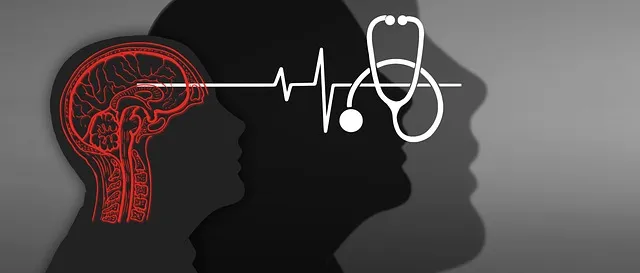Cultural competency is a vital aspect of modern healthcare, especially within diverse communities like those served by Lakewood Kaiser Permanente behavioral health services. Effective training equips professionals with tools to deliver sensitive, culturally appropriate care, enhancing patient outcomes and job satisfaction. Lakewood Kaiser Permanente leads in cultural sensitivity through comprehensive programs connecting with various communities and prioritizing burnout prevention for healthcare providers. Their holistic approach benefits patients and the resilience of the healthcare team, ensuring Culturally Responsive Care. Tailored training programs focusing on educational workshops, simulations, risk assessment, and trauma support services are crucial for improving outcomes and fostering an inclusive environment at Lakewood Kaiser Permanente behavioral health services.
Healthcare provider cultural competency training is essential for delivering quality care in a diverse society. This article explores the critical need for effective training programs, focusing on the innovative approach of Lakewood Kaiser Permanente Behavioral Health Services. We discuss how their initiatives foster cultural sensitivity and delve into designing comprehensive training that enhances cultural competency among healthcare providers. By understanding these strategies, we can improve patient outcomes and create more inclusive healthcare environments.
- Understanding Cultural Competency in Healthcare: A Need for Effective Training
- The Role of Lakewood Kaiser Permanente Behavioral Health Services in Fostering Cultural Sensitivity
- Designing Comprehensive Training Programs to Enhance Cultural Competency Among Healthcare Providers
Understanding Cultural Competency in Healthcare: A Need for Effective Training

Cultural competency is a vital aspect of healthcare that involves understanding and appreciating the diverse cultural backgrounds, beliefs, and values of patients and communities. In today’s multicultural society, healthcare providers must be equipped to deliver services that are sensitive to these differences. This is where comprehensive training comes into play, especially for organizations like Lakewood Kaiser Permanente behavioral health services, which aim to provide holistic care.
Effective cultural competency training equips healthcare professionals with the knowledge and skills to navigate complex interpersonal interactions, avoid biases, and offer culturally appropriate care. It goes beyond surface-level awareness; it involves learning about different cultural practices, communication styles, and emotional healing processes. By incorporating topics such as burnout prevention strategies for healthcare providers, stress reduction methods, and understanding cultural nuances, this training can significantly enhance patient outcomes and overall job satisfaction.
The Role of Lakewood Kaiser Permanente Behavioral Health Services in Fostering Cultural Sensitivity

Lakewood Kaiser Permanente Behavioral Health Services plays a pivotal role in fostering cultural sensitivity within the healthcare sector. Their comprehensive programs are designed to enhance the understanding and appreciation of diverse cultural backgrounds, ensuring that all patients receive compassionate and tailored care. Through innovative initiatives, such as the Community Outreach Program Implementation, the services connect with various communities, addressing unique health challenges and promoting inclusive practices.
This commitment extends to burnout prevention strategies for healthcare providers, recognizing that cultural competency goes hand in hand with well-being. By offering Trauma Support Services, they empower professionals to manage complex emotional demands while delivering effective treatment plans. This holistic approach not only benefits patients but also strengthens the healthcare team’s resilience and ability to provide culturally responsive care.
Designing Comprehensive Training Programs to Enhance Cultural Competency Among Healthcare Providers

Designing comprehensive training programs is paramount to enhancing cultural competency among healthcare providers, ensuring they can effectively cater to a diverse patient population. These programs should incorporate a multi-faceted approach, encompassing educational workshops, interactive simulations, and real-world scenario role-playing. For instance, Lakewood Kaiser Permanente behavioral health services have recognized the importance of such training, implementing initiatives that go beyond traditional classroom settings.
The curriculum can be tailored to include topics like understanding cultural nuances, unconscious bias awareness, and effective communication strategies. Furthermore, integrating risk assessment for mental health professionals and trauma support services within these programs is essential. By addressing mood management techniques and promoting empathetic engagement, healthcare providers can better serve patients from various backgrounds, ultimately improving patient outcomes and fostering a more inclusive healthcare environment.
Cultural competency training is a game-changer in healthcare, and organizations like Lakewood Kaiser Permanente Behavioral Health Services are leading the way. By designing comprehensive programs that address diverse cultural needs, they foster more inclusive and effective patient care. This approach not only enhances the patient experience but also empowers healthcare providers to deliver services that resonate with individuals from various backgrounds. In light of these efforts, it’s clear that continuous training is essential to stay responsive to a changing world and ensure everyone receives quality, culturally sensitive care.



